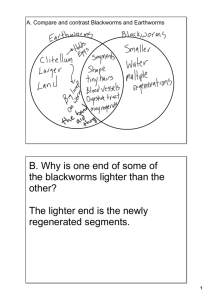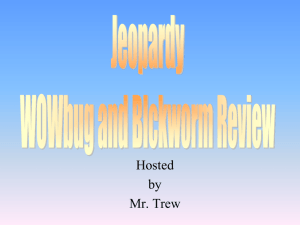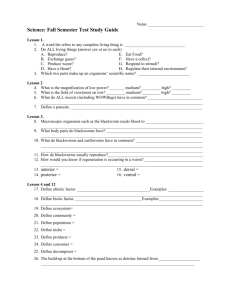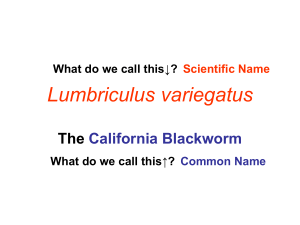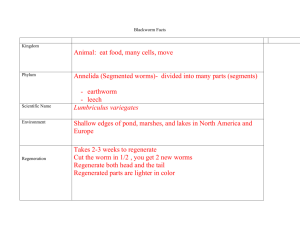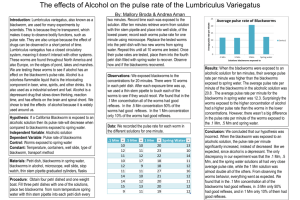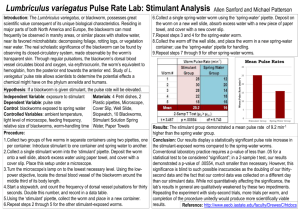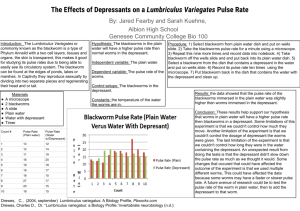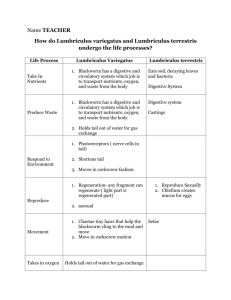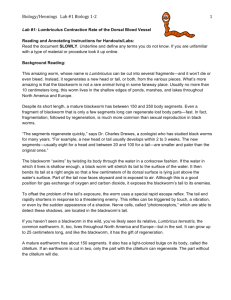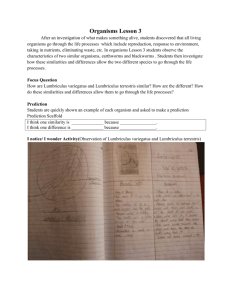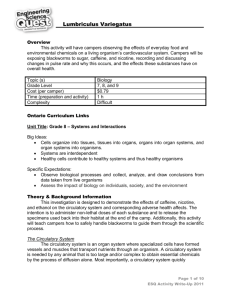Activity 74: Observing Organisms
advertisement
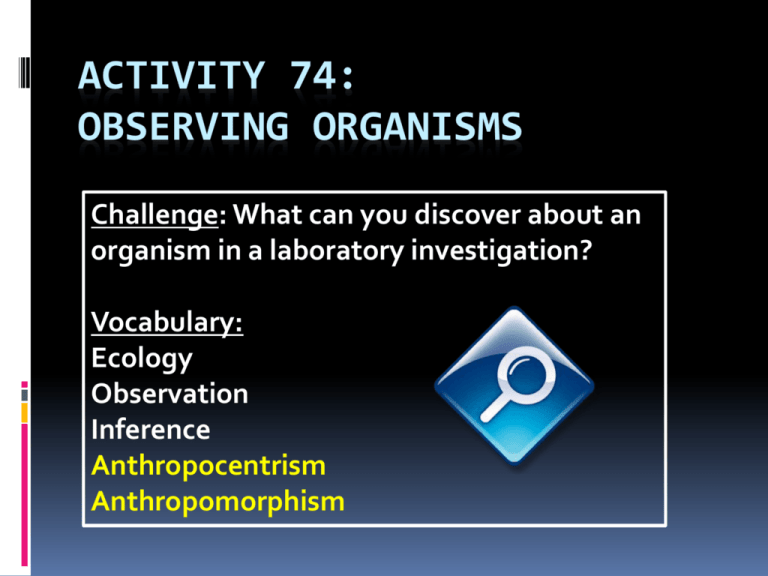
ACTIVITY 74: OBSERVING ORGANISMS Challenge: What can you discover about an organism in a laboratory investigation? Vocabulary: Ecology Observation Inference Anthropocentrism Anthropomorphism Read page E- 15 and write down the definition of ECOLOGY in your journals. GETTING STARTED Guidelines for Studying Animals What do we need to think about when dealing with live animals? Be Nice! Be Careful! Don’t hurt them Don’t throw them Don’t play around Warning! Blackworms reproduce ASEXUALLY. If you see a lighter color on one end, they are regenerating… so be GENTLE!! Observations vs. Inferences Observations Inferences (What you notice with senses) (Guess based on information) Things to Think About! Where is the head? Tail? How/ What do they eat? How do they move? How do they act with each other? How do they reproduce? Do they only live in water? What eats them? How do they respond to touch? How do they breath? Do they have a nervous system? Circulatory? Procedure # 7-9 Moisten a filter paper. Place it in the empty petri dish. Use your dropper to suction 1 worm. Please the worm on the filter paper. Observe how it moves alone and on filter paper. Blackworms under a Microscope! Use a dropper to place ONE blackworm on a slide. Begin with x10 magnification. Move up in magnification and focus using the fine focus each time. Record observations about the blackworm. *Think about its circulatory system! Group Work Analysis #3(E-18) You are a group of professional ecologists. Write an entry for the encyclopedia describing blackworms. Entry must include at least 8 facts. Include both physical observations and behavioral observations. Homework- Analysis #2(E-18) Based on what you know about blackworms, in what type of environment do you think blackworms live? Explain your reasoning. Temperature? With other Worms? Location? Surroundings? Predators? Prey? Water Type?
